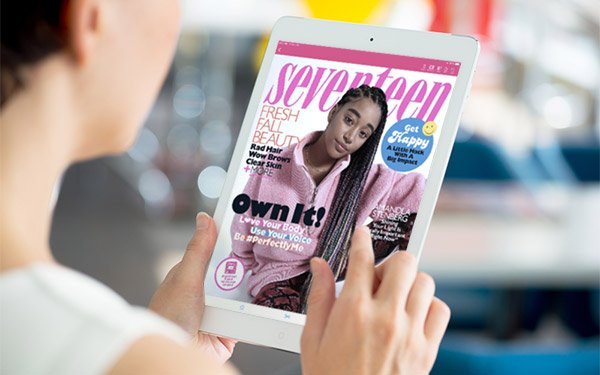
In another
step to move into a digital-first future, Hearst has announced that
Seventeen, which has been in print since 1944, will cease regular publication, turning to digital, and will print four
special issues a year.
The first special issue is prom-themed and will go on sale Christmas Day, according to Adweek.
In October, Hearst announced it would cease print publication
of Redbook and take further steps to integrate its digital and print editions companywide.
advertisement
advertisement
Hearst has been explicit about its intentions to turn publications into a collection
of digital powerhouses. How does that future look to marketers? Subscribers will no doubt miss the print edition, the repercussions of its shuttering will likely be felt less elsewhere.
Courtney Curtis, associate director at marketing agency Elevate, a new division within Reprise, used Teen Vogue as an example of a popular print title going all-digital. “Teens
literally mourned the loss of Teen Vogue when their print edition sunset last November, but the brand continues to illustrate digital growth.”
“Women are extremely
loyal to the print brands they grew up with, meaning publishers will increasingly focus dollars on converting them or catering to them in a digital environment,” Curtis told Publishing
Daily. “I imagine Hearst will position the change in a similar light, focusing on growing their team of digital experts and content creators, while scaling back on the more cost-prohibitive
print editions.”
Quynh Mai, founder of digital and experiential marketing agency Moving Image & Content, shared similar insights, noting that print publications still in
circulation would do well to “re-think their infrastructure: creative talent, workflow, tone of voice in order to transfer their brand equity into a relevant digital platform.”
“Print publications definitely have the marquee names and brand equity, and will now have to bring authenticity, transparency and a new tone of voice to be relevant in digital,” she
told Publishing Daily. “These are seismic shifts, which is why digital-only publications have really been able to lead in this space and steal market share, which brews loyalty in their
audiences.”
Curtis noted, “As a marketer, the shift to digital is more efficient, effective and measurable. Brand dollars go much farther in digital and social than they do in
print, and we're able to tie activity back to sales.”
As for Seventeen’s digital health, its website has held strong with 2 million unique visitors between September
2017 and the same period in 2018, per comScore.
Beyond turning to new strategies for digital, Seventeen made the savvy choice of focusing on special issues, which are
known to generate revenue for publishers. The four editions may become collectors’ items for the 1.9 million print subscribers.